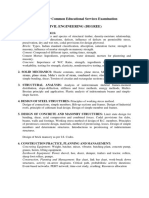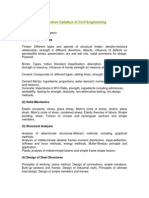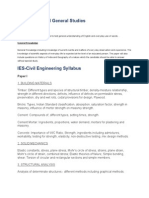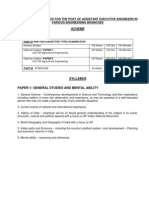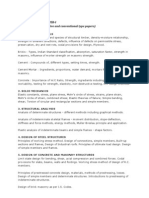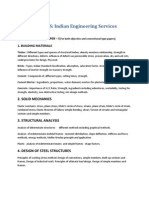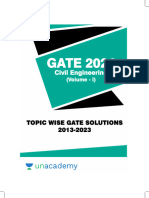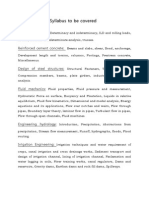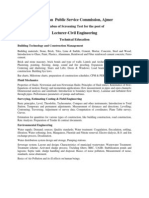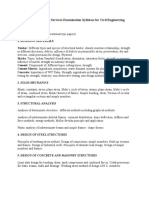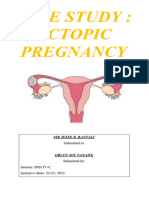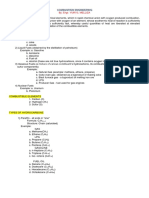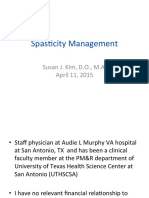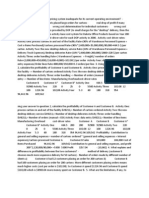0% found this document useful (0 votes)
28 views4 pagesSyllabus
The syllabus covers a comprehensive range of topics in civil engineering, including building materials, solid mechanics, structural analysis, and design of steel and concrete structures. It also addresses construction management, fluid mechanics, hydrology, environmental engineering, geotechnical engineering, surveying, and transportation engineering. Each section outlines key principles, methodologies, and applications relevant to civil engineering practices.
Uploaded by
Syed Muzammil Hyder RazviCopyright
© © All Rights Reserved
We take content rights seriously. If you suspect this is your content, claim it here.
Available Formats
Download as DOCX, PDF, TXT or read online on Scribd
0% found this document useful (0 votes)
28 views4 pagesSyllabus
The syllabus covers a comprehensive range of topics in civil engineering, including building materials, solid mechanics, structural analysis, and design of steel and concrete structures. It also addresses construction management, fluid mechanics, hydrology, environmental engineering, geotechnical engineering, surveying, and transportation engineering. Each section outlines key principles, methodologies, and applications relevant to civil engineering practices.
Uploaded by
Syed Muzammil Hyder RazviCopyright
© © All Rights Reserved
We take content rights seriously. If you suspect this is your content, claim it here.
Available Formats
Download as DOCX, PDF, TXT or read online on Scribd
/ 4







